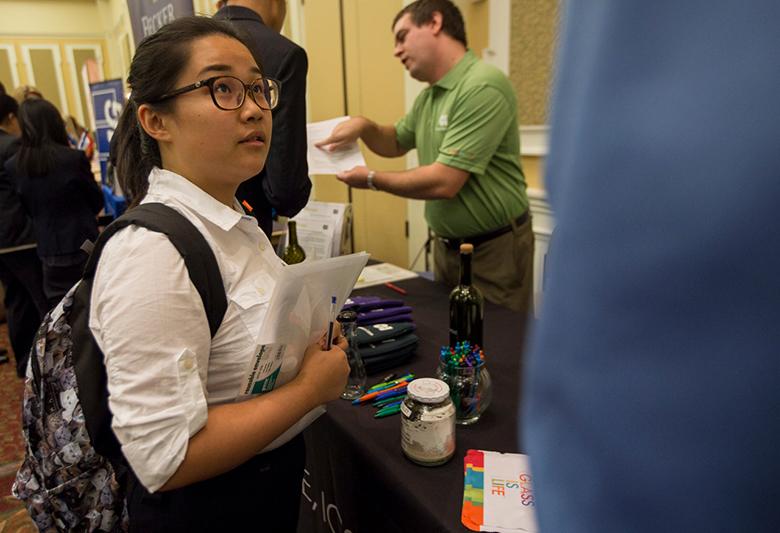When the average person thinks of accounting, they likely think of something monetary and rooted in finance. While it is true many accountants measure financial impact, recently, their skills are also being applied to sustainability—measuring environmental impact, social impact, emissions, employee well-being, energy usage and more.
Jennifer Stevens , an associate professor in OHIO’s College of Business, says that her students are different today. More and more students have a desire to use accounting to make an impact and benefit society, and sustainability accounting is a career option for students to do just that.
As more businesses shift their focus to operating sustainably and implementing sustainability initiatives, someone needs to hold them accountable, reliably measure these factors and report them. Stevens believes accountants are the natural choice to take on this role. Accounting professionals have a knack for measuring things, they’re just applying the skills they already have to a new set of resources and expanding from just measuring financial resources to measuring the impact of a variety of other resources.
“Accounting is key to the future success of sustainability initiatives because companies need to be accountable, we need to be able to verify what they're saying and we need to hold them accountable for what they're saying and the goals that they're setting,” said Stevens. “If investors, if governments, if stakeholders, if the public are going to care about environmental concerns and a business's impact on the environment, companies are going to have to start to measure and report that.”
Sustainability accounting, also known as environmental, social and governance (ESG) accounting, is not exclusively about auditing companies and holding them accountable, it’s also a matter of advising entities on their progress, helping them set goals and working with them to reach those goals. Since it is such a new concept, creating sustainability reports for businesses can be a daunting task, but it is also an important and exciting one according to Stevens.
“This is an area that is just so new and up and coming. I mean, if you think about measuring dollars—which we've done for years—now, we're measuring, oh my gosh, all this other stuff—employee well-being, how do you measure that consistently, comparably, reliably?” Stevens explained. “What we're doing is applying some traditional accounting measurement concepts to a brand-new area, and it is exciting. But it’s also challenging because this had never been done before and it's being done right now.”
Sustainability accounting is quickly gaining traction and will be an even greater source of accounting jobs in the coming years. OHIO’s Master of Accountancy and Analytics Program , of which Stevens is the director, is quickly adapting to meet the need. The education students receive immediately goes beyond the textbook as they work with local businesses and incorporate sustainability accounting. Around 40 percent of the program is community service-based experiential learning where a professor guides students through an actual project for an actual business.
“With this type of project, students are getting exposure to a real operating environment, real data from a company and they’re helping that company solve a business problem,” said Stevens. “And so, our students come out of our master's program with a complete leg up on all their peers [from other institutions] because they've actually been involved in real projects.”
Whether students are aiming to complete their undergraduate degree or pursue a master’s degree, the demand for accountants is high. In 2021, PwC—one of the largest accounting firms in the U.S.—said they were planning to hire 100,000 workers over the next five years many of whom would fill ESG-related roles.
“The demand for accountants is so high,” said Stevens. “Everybody needs accountants, and everybody is going to need sustainability accountants as investors shift their preferences toward not just financial impact, but a broader range of impacts, environmental and social. And it's happening, we see investor preferences changing.”



